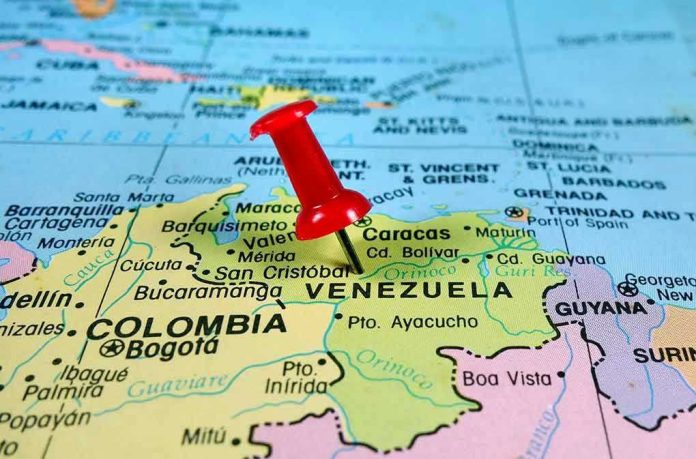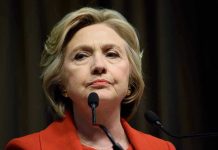
A new U.S. military buildup in the Caribbean signals President Trump’s resolve to confront hostile regimes and reaffirm America’s strength on the world stage—sending shockwaves through Venezuela’s leadership and sparking debate at home.
Story Snapshot
- U.S. military forces have increased their presence in the Caribbean, intensifying pressure on Venezuela’s regime.
- The Trump administration’s assertive actions aim to counter threats and restore American leadership after years of perceived weakness.
- Conservatives cheer efforts to confront socialism abroad and defend U.S. interests, while critics warn of escalating tensions.
- Strategic deployments highlight a broader effort to reverse the previous administration’s globalist, hands-off policies.
Trump’s Strategic Military Posture in the Caribbean
President Trump’s administration has authorized a substantial deployment of naval assets, air power, and troops throughout the Caribbean region over the past two months, targeting the authoritarian regime of Venezuelan President Nicolás Maduro. This bold military maneuver reflects a renewed commitment to American security and influence, contrasting sharply with the prior administration’s more passive approach. National security officials emphasize that these moves are designed to deter malign actors and protect U.S. interests in the Western Hemisphere after years of unchecked adversarial expansion.
Confronting Authoritarianism and Socialism Abroad
The presence of American military power near Venezuela serves as a stark warning to socialist regimes that threaten stability and undermine democratic values throughout the region. By increasing pressure on Caracas, the Trump administration signals its intent to roll back the lingering effects of leftist policies in Latin America. Many conservative analysts argue that this show of force not only protects U.S. economic and security interests but also supports the aspirations of those suffering under repressive governments. The policy resonates with voters who view socialism as antithetical to American ideals.
Reversing Globalist Neglect and Restoring U.S. Leadership
For years, critics contend that American influence waned as previous leaders prioritized diplomacy over deterrence and allowed adversaries to gain footholds close to U.S. borders. The recent Caribbean deployment is viewed by many conservatives as overdue correction—an effort to reestablish deterrence, defend constitutional values, and signal that the era of American retreat is over. This approach aligns with the Trump administration’s broader pledge to put America first, secure borders, and challenge any foreign entity that threatens the nation’s sovereignty or prosperity.
Domestic Reaction: Support and Caution
Within the United States, the military buildup has drawn strong support among those who prioritize constitutional government, national security, and a robust defense against foreign encroachment. Many see it as a welcome pivot from the previous administration’s perceived tolerance of global instability and leftist overreach. However, some opponents warn of potential escalation and call for careful oversight to avoid unintended consequences. Limited data make it difficult to assess the long-term impact, but the administration maintains that decisive action is necessary to preserve American values and security.











